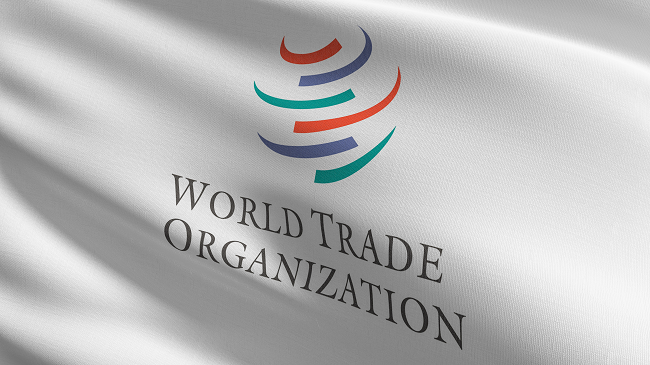
The WTO has slashed its estimates for the growth of international trade next year as a slowdown in global manufacturing and tight monetary policy in major countries puts the squeeze on businesses around the world.
The WTO expects the volume of trade in world merchandise to grow at 0.8%, less than half the rate predicted in the forecast it issued in April.
The organisation’s global trade statistics update for October 2023 highlights that while it expects real world GDP to grow 2.5% in 2024, it anticipates a “broad-based” slowdown affecting “a large number of countries and a wide array of goods”.
Manufacturing is experiencing a particular slowdown in the likes of iron and steel, office and telecom equipment as well as textiles, the analysis finds.
‘Shadow’ over trade
The update argues that tighter monetary policy in the US and the EU has had a cooling effect on trade, with high interest rates set to stay in place a while longer as both sides of the Atlantic battle inflation.
It’s not only the West experiencing a slowdown — China is feeling the effects of “strained property markets”, while the Ukraine war and lingering effects of the Covid-19 pandemic continue to “cast a shadow” over world trade.
‘No evidence’ of de-globalisation
US dollar appreciation is also cited as a cause of slowing growth, while “geopolitical tensions”, particularly between the US and China, also play a role. However, the body does not see this as part of a larger trend.
The report states:
“WTO economists do see some signs in the data of trade fragmentation linked to geopolitical tensions, but so far there is no evidence of a broader deglobalisation trend that could weigh more heavily on trade.”
Chief economist at the WTO Ralph Ossa said in light of the findings:
“The data suggest that goods continue to be produced through complex supply chains, but that the extent of these chains may have plateaued, at least in the short run.
“Positive export and import volume growth should resume in 2024, but we must remain vigilant.”
Supply chain fragmentation could lead to a further decline in trade growth, the report suggests.
‘Crisis’ at WTO
The WTO itself is wrestling with a “crisis” of unresolved trade disputes owing to “trade concerns” among member nations, according to a recent Reuters report.
A total of 29 disputes have yet to be settled by the WTO since 2019, as the US has blocked appointments to the Appellate Body at the organisation.
Keith Rockwell of Hinrich Foundation warned that the body is “teetering on the abyss of irrelevance”.
Speaking in light of the October update, director general at the WTO, Ngozi Okonjo-Iweala, called for countries to abide by international trade rules:
“The global economy, and in particular poor countries, will struggle to recover without a stable, open, predictable, rules-based and fair multilateral trading system.”
